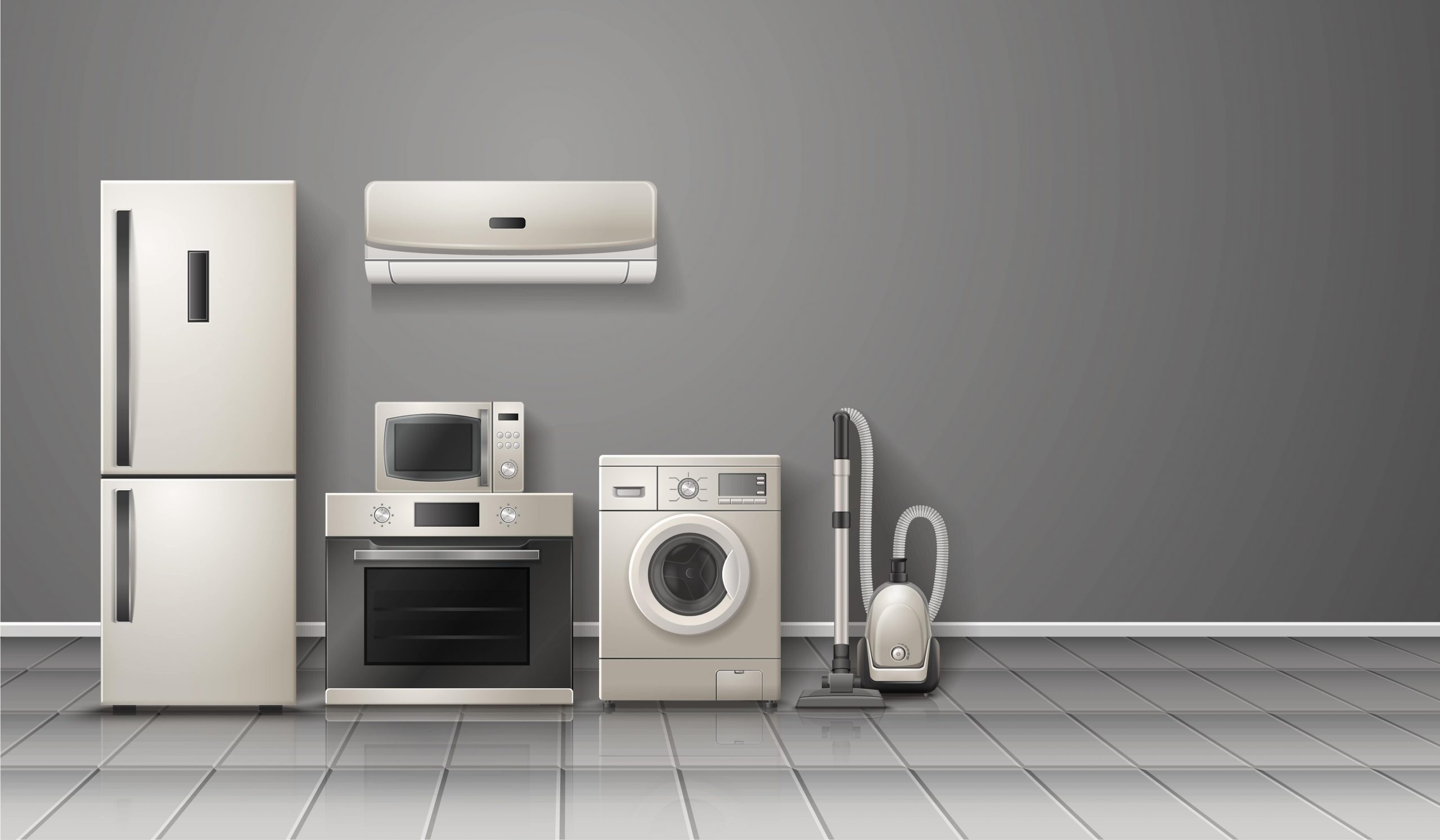
Have you ever wondered which of your home appliances are the biggest energy hogs? Or the best ways to protect your expensive devices to ensure they last as long as possible? As a homeowner, these kinds of questions used to keep me up at night. I wanted to make sure I was using my appliances efficiently and guarding them against damage, all while keeping my utility bills under control.
After years of trial and error, I’ve identified some of the most useful home appliances, like refrigerators, washing machines, and air conditioners, that make daily life more convenient while balancing energy usage. I’ve also picked up some easy tips and tricks to safeguard these workhorses and keep repair or replacement costs down. In this article, I’ll share what I’ve learned so you can optimize how you use and protect the appliances you rely on every day. Get ready to improve your home’s efficiency, lower your electricity usage, and gain peace of mind knowing your essential devices are well-maintained.
1- Useful Large Appliances: Refrigerator, Washing Machine & Dishwasher
Some of the most useful large home appliances in any home are the refrigerator, washing machine, and dishwasher. These workhorses make daily life so much easier, even if they do use a fair amount of electricity.
Your fridge keeps food fresh for days or even weeks, so you can stock up on groceries and always have something on hand for meals. To keep it running efficiently, make sure the seal is clean and the coils are dust-free. And don’t keep the temperature too cold—around 37 F is ideal.
A washing machine eliminates the need to hand wash or scrub dirty clothes. Look for an Energy Star rated model and only run full loads to save power. Use the appropriate water level and temperature for the load. For tough stains, pretreat before washing and avoid over-sudsing which can damage the machine.
Last but not least, a dishwasher handles the dirty dishes so you don’t have to. As with the washer, run full loads and choose an Energy Star dishwasher. Avoid rinsing dishes before loading since modern detergents are designed to work on stuck-on food. And for spotless glassware, use the air-dry option—it’s more energy efficient than the heated dry cycle.
By following some simple tips, these indispensable appliances can work efficiently for you while minimizing environmental impact. Make the most of them and enjoy more time doing the things you love! Life’s complicated enough without having to wash dishes and clothes by hand.
2- Small Appliances That Make Life Easier: Microwave, Coffee Maker & Food Processor
Some small appliances make everyday life so much easier. A few of my favorites are the microwave, coffee maker, and food processor.
- Microwave: This little wonder heats up leftovers, defrosts frozen foods, and cooks meals in minutes. No more waiting for the oven to preheat—just pop your food in, set the time, and you’re done. Microwaves do use a fair amount of energy though, so only run it when you need to.
- Coffee maker: For many of us, a coffee maker is essential. Whether you prefer a basic drip machine, single-serve pod brewer, or high-tech espresso maker, a coffee maker allows you to quickly make your favorite caffeinated beverage at home. Coffee makers don’t draw too much power and can save you money versus buying coffee out.
- Food processor: If you do a lot of cooking, a food processor will save you tons of time chopping, slicing and shredding. In seconds, you can make coleslaw, grate cheese, chop nuts, or puree sauces. Food processors are more energy efficient than running a blender for the same tasks.
Using small kitchen appliances in moderation and choosing Energy Star rated models can help keep your electricity usage in check while still enjoying their convenience. With the right tools and techniques, cooking at home has never been easier or more rewarding. These handy little helpers make whipping up home-cooked meals a total breeze.
3- Protecting Your Major Home Appliances: Cleaning, Ventilation & Power Strips
To keep your major home appliances running efficiently and prevent costly repairs, it’s important to properly clean, ventilate, and protect them.
Cleaning
Regular cleaning of appliances removes built-up dirt and debris that can reduce performance and lifespan. For refrigerators and ovens, wipe down seals and gaskets with a damp cloth to prevent sticking. Clean drip pans, fans, vents, and coils on stovetops and ovens. For dishwashers and washing machines, run empty hot cycles with 2 cups of white vinegar once a month to prevent soap buildup and odors.
Ventilation
Good airflow is key. Don’t block vents, fans or air intakes on any appliance. Make sure there are a few inches of clearance on all sides of refrigerators, ovens, and dryers. Run an exhaust fan or open windows when using the stovetop or oven. For dryers, clean the lint trap before every load and have the vent duct inspected annually to prevent fire hazard.
Power Strips
Use a surge protector or power strip for appliances to prevent damage from power surges and spikes. For major appliances like refrigerators, ovens, washers and dryers, choose a heavy-duty power strip rated for high wattage devices. This provides an extra layer of protection for the appliance and gives you a central point to easily cut power when not in use.
Following these best practices for cleaning, ventilation and power protection will maximize the lifespan of your home appliances and save money on energy usage as well as costly repairs or replacements down the road. Performing regular maintenance and creating ideal operating conditions for your appliances are easy ways to keep things running smoothly for years to come.
4- The Energy Hogs: Oven, Water Heater & HVAC
The Oven
Your oven is one of the biggest energy consumers in your home. Every time you preheat the oven, it can use between 2 to 5 kilowatt-hours of electricity depending on its size and age. Newer ovens, especially convection ovens, tend to be more energy efficient. Some tips to save energy with your oven:
- Only preheat the oven when necessary. Many foods like casseroles, breads and roasts don’t require preheating.
- Keep the oven door closed as much as possible while cooking. Opening the door releases heat and makes the oven work harder to regain the temperature.
- Turn off the oven a few minutes before the end of cooking time. The residual heat will finish cooking the food.
- Consider using a toaster oven or microwave when possible for small meals. They use a fraction of the energy of a full-size oven.
The Water Heater
Your water heater has to constantly keep a tank of water hot for when you need it. This requires a significant amount of energy, especially if you have an older model. Some ways to reduce your water heater’s energy usage include:
- Turning down the thermostat to 120 degrees F. This is hot enough for most uses and will save energy.
- Taking shorter showers. Limit your showers to 5 minutes or less.
- Fixing any leaky faucets. Even small drips can waste gallons of hot water each day, forcing your water heater to work harder.
- Adding insulation to exposed hot water pipes. This helps retain heat so your water heater doesn’t have to reheat the water as much.
HVAC (Heating, Ventilation and Air Conditioning)
Your HVAC system has to constantly heat and cool your home to maintain a comfortable temperature. Make sure you have an energy efficient model sized properly for your home. Some ways to reduce HVAC energy usage include:
- Setting the thermostat to 68 degrees F in winter and 78 degrees F in summer.
- Turning on a programmable thermostat to lower temperatures at night or when away from home.
- Closing vents and doors in unused rooms. Only heat and cool the rooms you are using.
- Having your HVAC system serviced annually. A well-maintained unit operates more efficiently.
- Adding insulation and weatherstripping to improve your home’s energy efficiency. The less work your HVAC has to do, the less energy it will use.
FAQs: Most Common Questions About Home Appliances
1-How much electricity do home appliances use?
The appliances that gobble up the most energy in your home are the ones that produce heat or cold, like refrigerators, air conditioners, water heaters, and ovens. Things with motors, such as washers, dryers, and vacuum cleaners also use a fair amount of electricity. The actual amount of power used depends on the size and efficiency of the appliance. For example, an Energy Star certified refrigerator will use much less energy than an older model.
2- How can I protect my home appliances?
There are a few easy ways to safeguard your appliances and prevent damage:
- Use a surge protector or power strip. Surge protectors prevent power surges from damaging electronics. Plug high-wattage appliances like refrigerators, washers, and air conditioners directly into wall outlets.
- Turn appliances off when not in use. Don’t leave things like TVs, gaming consoles, and computers in sleep or standby mode. Flip the switch to cut power completely.
- Follow the manufacturer’s instructions. Read the manuals for proper installation, operation, and care guidelines. Things like overloading a washer or dryer, or blocking vents and air intakes can shorten an appliance’s lifespan.
- Have a professional install and service appliances when needed. Improper installation of equipment like water heaters, air conditioners, and gas stoves can be a safety hazard. It’s best to have a licensed technician handle these jobs.
- Clean and maintain appliances regularly. Built-up dirt and grime reduces efficiency and can damage components over time. Perform regular maintenance like defrosting freezers, wiping down oven vents, and cleaning dryer lint traps.
3- What are the most useful home appliances?
Some of the most useful appliances are:
- Refrigerator: Keeps food fresh for days or weeks. Look for an Energy Star model to save power.
- Stove and oven: Essential for cooking meals at home. Gas or electric options available.
- Microwave oven: Quickly heats up leftovers and snacks. Small countertop models are very affordable.
- Coffee maker: For many, a necessity to start the day. Choose a programmable model to wake up to fresh coffee.
- Washer and dryer: Makes doing laundry much more convenient than trips to the laundromat. Front-loading washers are the most efficient.
Parting Words
So there you have it, the most useful home appliances that make your life easier while also being energy efficient. By following some simple tips like using a surge protector, keeping your appliances well-maintained, and upgrading to Energy Star rated models when possible, you’ll get the most out of your appliances without wasting energy or money. At the end of the day, home appliances are meant to simplify your life, not complicate it. Keep things efficient yet practical and you’ll have a well-running home in no time. Now go forth and conquer that never-ending to-do list with the help of your trusty home appliances!

